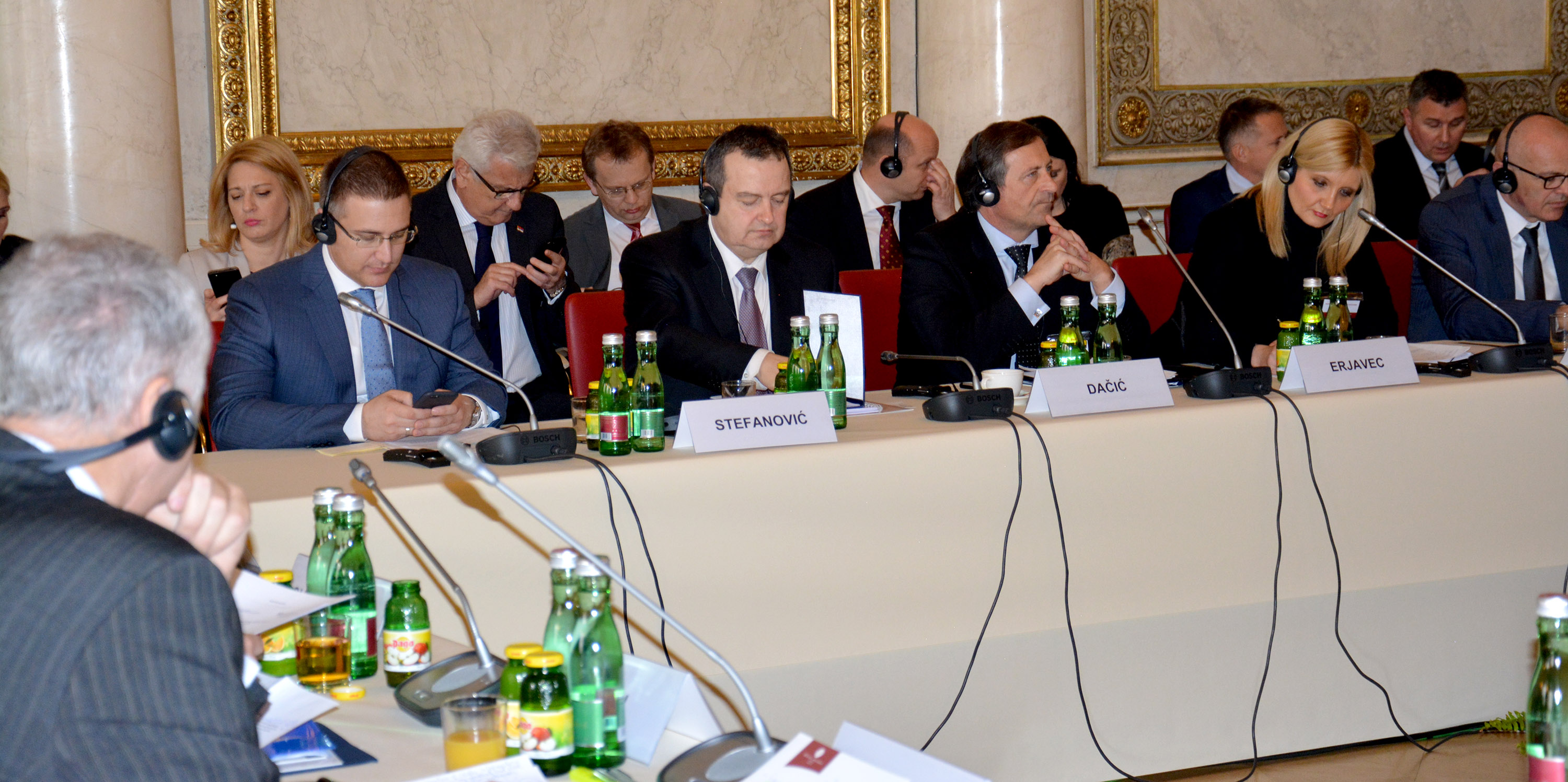



| Wednesday, 24 February 2016. | |
| Minister Dacic Attending the Event “Managing Migration Together” | |
| + larger fontnormal font- Smaller font |
 Remarks made by First Deputy Prime Minister and Minister of Foreign Affairs Ivica Dacic at today's event "Managing Migration Together", which is co-hosted in Vienna by the Austrian Federal Ministries for European Affairs and Integration and of the Interior: Remarks made by First Deputy Prime Minister and Minister of Foreign Affairs Ivica Dacic at today's event "Managing Migration Together", which is co-hosted in Vienna by the Austrian Federal Ministries for European Affairs and Integration and of the Interior:Dear colleagues, Ladies and gentlemen, First of all, I would like to thank our host, Minister Sebastian Kurz, for his initiative that we gather again today in Vienna to come back to the issue of what to do to manage the migration crisis in the best possible manner. The very fact that we have been meeting each other quite frequently in recent time to discuss the migration issue, speaks volumes about the gravity of the situation. I have already on several occasions pointed out that it was of crucial importance for Serbia, as an EU candidate country and the one bearing the brunt of the burden as a transit country along the Western Balkans route, a country through which 600,000 migrants transited last year and almost 100,000 of them have already passed through in 2016, that the EU adopted a unified approach and agreed on a comprehensive solution. I still hold the view that this was the only right and efficient way to deal with the crisis of this scale. Placed between the EU member states the migrants are coming from and those they are heading to, which often diverge as to the ways of solving the crisis, Serbia practically has not much room for manoeuvre in managing the migration flow through the country. Serbia is carefully watching the EU positioning concerning this issue and the situation is such that it has to bring its activities in harmony with the upstream and downstream Balkan route countries in the first place, with which it shares the millstone of immense migration pressure. Accordingly, the Police Chiefs of Macedonia, Serbia, Croatia, Slovenia and Austria met on February 18th in Zagreb and agreed on joint profiling and registration of migrants at the Macedonian-Greek border. The Republic of Serbia has been implementing the adopted measures since February 22nd, 2016. I would also like to remind you that Serbia was the only non-EU country to deploy 20 of its police officers to the Macedonian-Greek border at the end of the last year. After the end of their mandate, a new contingent of 10 police officers has been deployed on February 10th. This is not to say we are not appreciative of different perspectives on the path leading to the resolution of the crisis. However, we will not be in a position to allow the migrants, whose influx has been permanent, remain and stay longer in our territory, if the countries upstream along the route block their passage and the final destination countries deny them reception. At this moment, we are ready to offer support, temporary shelter and care for 6,000 persons, which equals an influx of two to three days but, on the other hand, we can neither allow Serbia become a shelter for tens of thousands of migrants, nor take back in the migrants who have already transited through our territory but failed to get asylum in the EU. We believe that the only sustainable solution is to find a way of keeping the migrants and refugees in the region, as close as possible to their countries of origin. This would reduce the strain on Greece, which has endured huge pressure, but also enable their faster return and engaging in country rebuilding, once the war is over. Finally, allow me to express satisfaction with the good communication existing among the countries on the Western Balkans route, and to reiterate that it is significant that unified migration management procedures have been adopted. Thank you. |